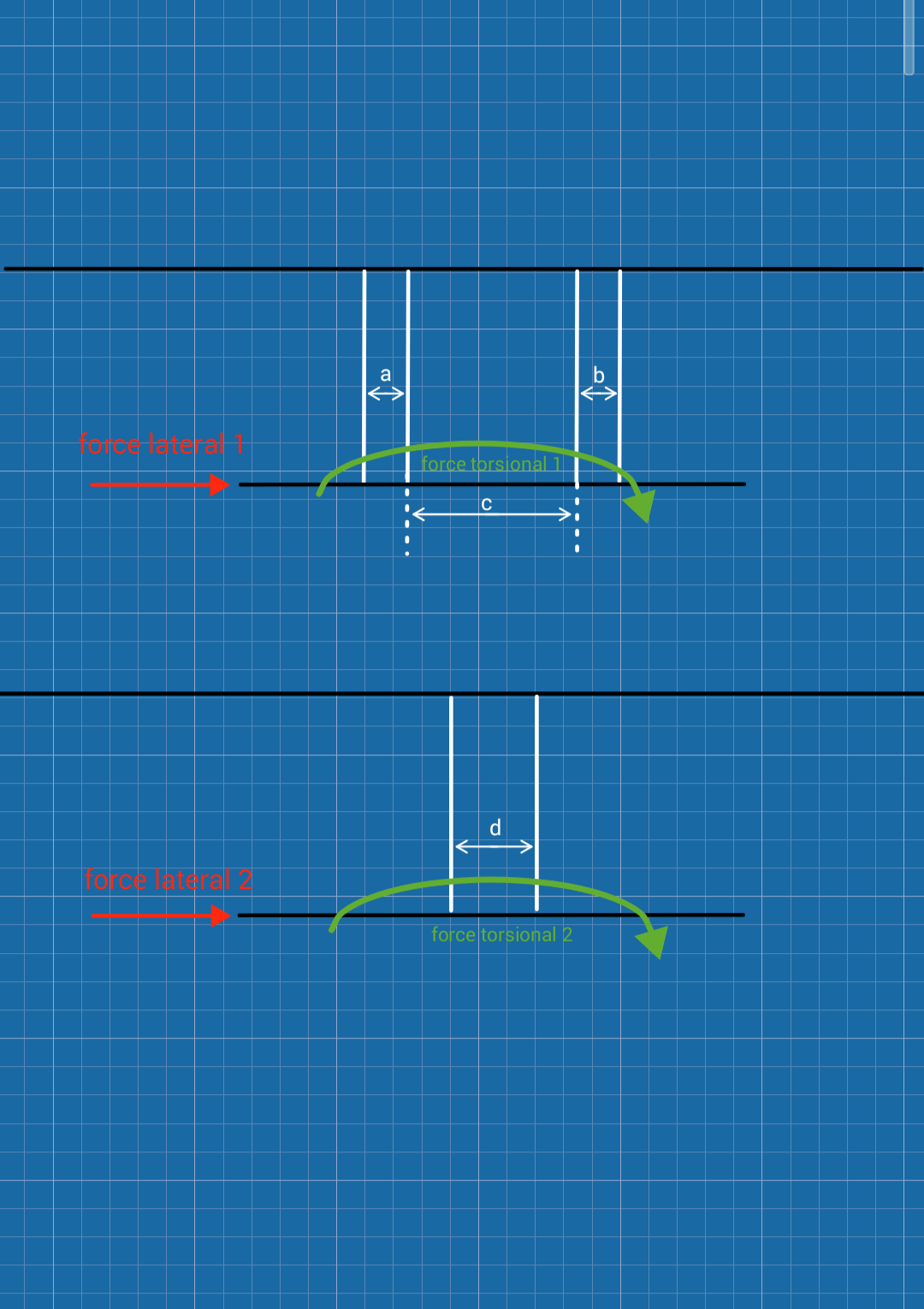How does one calculate the stiffness1 of (a) one big diameter tube and (b) two small diameter tubes that are a certain distance apart?
I have made a drawing that illustrates and specifies the question:

Assumptions and clarifications:
- The black lines can be thought of as infinitely stiff plates onto which the tubes (white) are welded to.
- I chose the tube diameters below so that the two small tubes weigh as much as the one big tube in order to make this calculation answer the stiffness to weight ratio question posed in the title.
- a = b = 20.45mm
- c = 60.5mm
- d = 40mm
- force lateral 1 = force lateral 2
- force torsional 1 = force torsional 2
- By "force torsional" I mean a force that is for example pressing into the plane on the right end if the short black line and pulling from the plane (towards the observer) on the left end of the short black line.
- The black lines can be thought of as infinitely stiff plates on to which the tubes (white) are welded to.
- The length (500mm) and the wall thicknesses (0.9mm) are equal for all tubes.
1 Lateral and torsional stiffness, could also be measured in displacement of the shorter black line in the drawing.
Thank you for your contribution in advance.